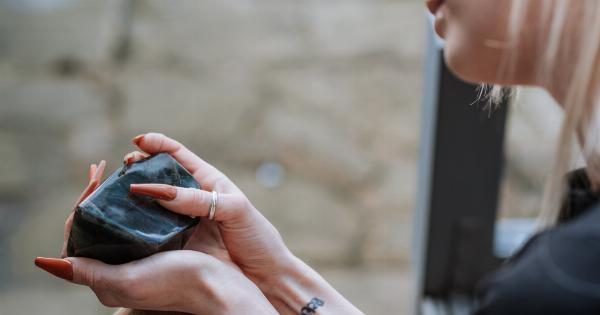Tattoos have been a means of self-expression and art for centuries, but they also come with their share of risks and side effects. One of the most common concerns associated with tattooing is skin reactions.
Skin reactions can occur as a result of an allergic reaction to the ink, the needle, or the aftercare products, or they may simply be a natural response to the trauma that comes with getting a tattoo.
Types of Skin Reactions
There are several different types of skin reactions that can occur after getting a tattoo. These include:.
1. Redness and Swelling
It is normal to experience some degree of redness and swelling around the tattooed area immediately after getting a tattoo.
However, if the redness and swelling become excessive or do not subside over time, it may be a sign of an infection or an allergic reaction.
2. Itching and Irritation
Itching and irritation are common during the healing process and may be caused by the tattoo ink or aftercare products used. However, if the itching is severe or accompanied by other symptoms such as rash or hives, it may indicate an allergic reaction.
3. Rash or Hives
A rash or hives may develop as a result of an allergic reaction to the tattoo ink, needle, or aftercare products. The rash may appear as small bumps around the tattooed area or may spread to other parts of the body.
4. Scarring and Keloids
Scarring and keloids may occur as a result of the trauma caused by tattooing. Scarring is a natural part of the healing process and is usually minimal, but in some cases, it may be more severe.
Keloids are raised, thick scars that may develop around the tattooed area and can be difficult to treat.
Causes of Skin Reactions
The exact cause of skin reactions to tattoos is not always clear, but there are several factors that may contribute to their development. These include:.
1. Allergic Reaction to Ink
An allergic reaction to the tattoo ink is a common cause of skin reactions. Some people may be allergic to specific ink colors, while others may be allergic to all types of ink.
The symptoms of an allergic reaction may include redness, itching, swelling, and rash.
2. Allergic Reaction to Needle
Some people may be allergic to the metal in the tattoo needle, particularly nickel or chromium. An allergic reaction to the needle may cause redness, itching, and swelling around the tattooed area.
3. Allergic Reaction to Aftercare Products
Aftercare products such as ointments or lotions may also cause an allergic reaction in some people. These reactions may present as itching, rash, or hives.
4. Infection
Infection is a common complication of tattooing. Bacteria can enter the body through the broken skin and cause an infection. Symptoms of infection may include redness, swelling, warmth, and discharge.
How to Minimize Skin Reactions
While skin reactions to tattoos cannot always be prevented, there are several steps that can be taken to minimize their occurrence. These include:.
1. Choose a Reputable Tattoo Artist
Selecting a reputable and experienced tattoo artist is essential to ensuring that the tattoo is performed safely and with minimal risk of complications.
2. Use High-Quality Ink
High-quality tattoo ink is less likely to cause an allergic reaction than lower quality inks. It is important to use ink that is free from harmful chemicals and has been approved by the FDA.
3. Follow Proper Aftercare Procedures
Following proper aftercare procedures can help to minimize the risk of infection and other complications.
This includes keeping the tattoo clean and dry, avoiding swimming or soaking the tattooed area for at least two weeks after getting the tattoo, and avoiding clothing that may irritate the tattooed area.
4. Monitor the Tattoo for Changes
It is important to monitor the tattoo for changes and to seek medical attention if any unusual symptoms occur. This includes excessive redness or swelling, severe itching, rash or hives, or fever.
Conclusion
Skin reactions to tattoos are not uncommon and can be caused by a variety of factors, including an allergic reaction to ink, needle, or aftercare products, or infection.
While these reactions can be uncomfortable, they are typically temporary and can be minimized through proper care and monitoring. Choosing a reputable tattoo artist, using high-quality ink, following proper aftercare procedures, and monitoring the tattoo for changes are all essential steps in minimizing the risk of skin reactions and other complications.




























